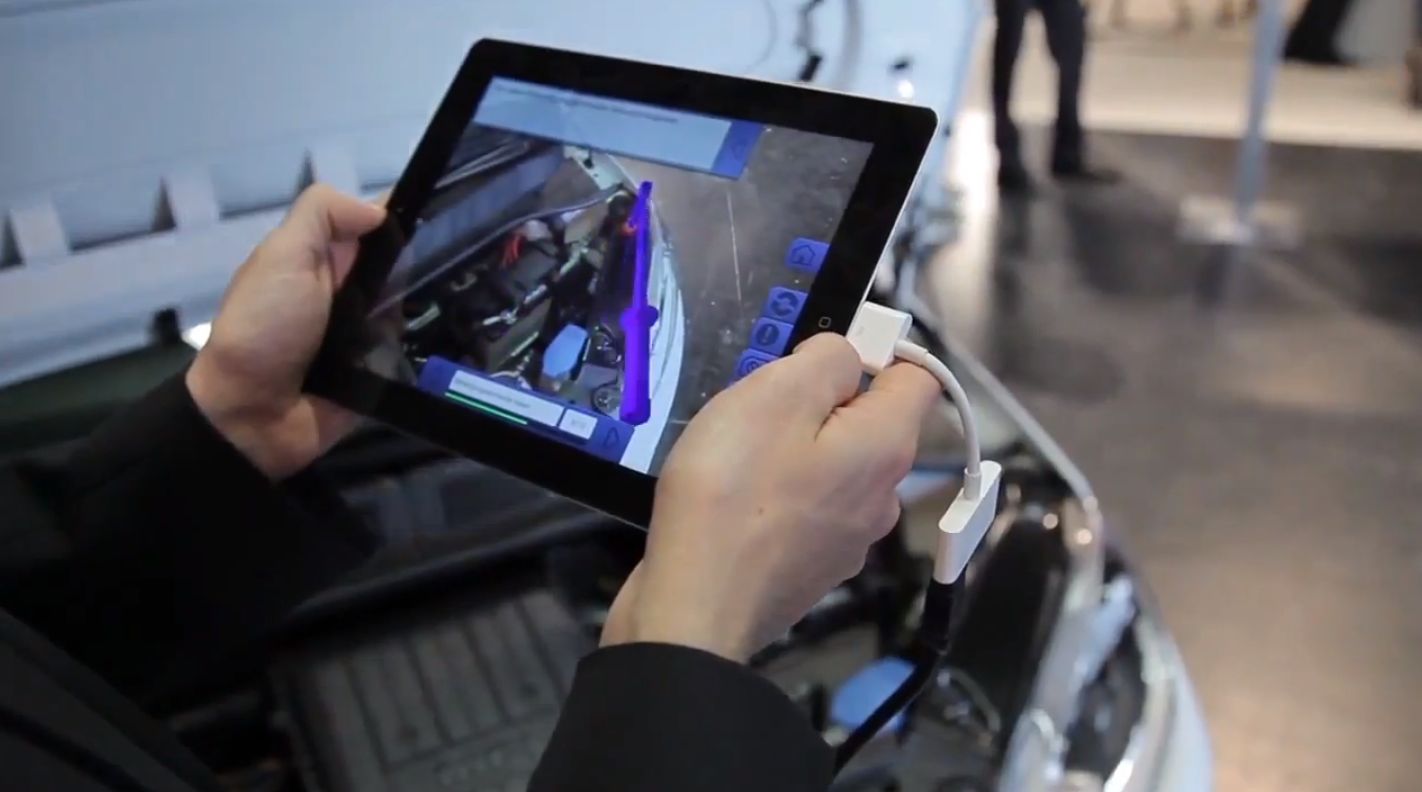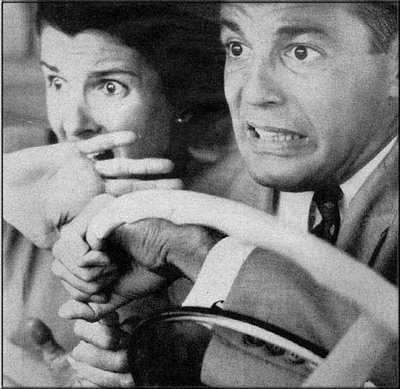5 People Who Give Car Care Advice & Whom You Should Trust Most

Has a peaceful drive ever turned frantic after some weird dashboard symbol began flashing? If you’re like some drivers, the face of your go-to guy or girl for auto repair appeared in your mind’s eye.
Here’s the problem though: for many drivers, there’s more than just one individual or source to trust. You might know three or four people who can help you troubleshoot your car woes.
There’s your cousin Manny, your mechanic Vinnie and your acquaintance Sally who all seem qualified for the job. So who should you trust most?
To help you make that decision, we will discuss the five people who will offer you car care advice (they’re not all people as you’ll soon discover). We’ll also highlight the pros and cons of selecting either one if you currently or eventually need a repair job.
The Mechanic

For as long as long as cars have populated the roads, we have relied on mechanics to address our car troubles. And for the most part, that hasn’t changed much (more on this later). You might have a mechanic who you visit, or at least know about due to a friend’s recommendation.
Performing needed “surgery” on your vehicle is what they got trained to do. Got a leak? A mechanic could fix it. Hit a pothole and damaged your wheels or axles? The mechanic would repair it. Needed a shoulder to cry on because you realized your car maintenance costs are higher than everyone else? Your mechanic would hear you out.
With that said, these jack-of-all-trades aren’t always the first choice for advice anymore. The reason? Car manufacturers have built so many electronic parts into their cars, that the traditional mechanic may not have the tools needed for certain repairs. But of course, mechanics are still indispensable.
| The Mechanic | |
| Pros | Cons |
| -Professionally trained, certified | -May not be “up-to-speed” on how to fix newer cars |
| -Wide range of tools and technical skills | -May not have the tools to diagnose and repair modern vehicles |
| -Some specialize in certain car types or brands (good if you own a certain kind of car) | -Some specialize in certain car types of brands (not good if you own a certain kind of car) |
| -Willing to make referrals to other mechanics if they can’t offer a particular service | -Some mechanics may refer to you others based on personal gain, rather than catering to your needs |
| -More willing to negotiate on price | -Prices may not be regulated (meaning they can vary wildly from shop to shop) |
The Grease Monkey

You probably have at least one friend who’s dreams of becoming a mechanic never materialized – he or she is your circle’s grease monkey. It’s generally a pleasure to have them around.
When you have a concern about cars, you can approach them without having to worry about initial “consult” fees. And to make it sweeter, they leave the glossary of head-scratching auto terms out of the conversation.
They’ll make you feel like you’re part of the repair process. As they work on your vehicle, you can sit on the sidelines or stand nearby to supervise them. And when it’s all over, you can smile as you pay them half (or nothing at all) of what you would for a regular mechanic.
Of course, this all comes with one caveat. Your grease monkey friend (God bless them) is probably not the most qualified person for the job. Sure, your buddy may have exceptional talent when it comes to fixing engines, but their lack of mechanic training will no doubt create a skill deficit.
| The Grease Monkey | |
| Pros | Cons |
| -Enthusiastic learner, wide knowledge about car care | -Lack qualification to address more serious concerns |
| -Likely to possess some helpful tools and skills to diagnose/repair car parts | -Likely to have no access to facilities or tools that professional mechanics have |
| -May have significant knowledge of a particular car model or brand (if they own one) | -Knowledge of auto mechanics may be too general and lack in-depth understanding of car functionality |
| -Can often refer you to someone who’s trained or more knowledgeable | -May refer you to a mechanic or technician who doesn’t address your specific needs |
| -Generally affordable or free for some repair jobs | -Lure of a cheap price can mean an amateurish repair job |
The Dealership

It’s a myth to say that no one goes to the dealership anymore. Many people shop for cars online now, but those same individuals will go straight to the dealership when their vehicle “acts up” (or worse, breaks down). After all, the cars of today are starting to look more like a spacecraft, needing the genius of technicians working at dealerships to fix certain problems.
And that very genius is welcome because if something goes wrong, you can sit calmly knowing they have all the answers. Unlike outside mechanics or a BFF, a dealer technician’s specialized knowledge of your car can help them work with virtually any component in your vehicle.
Of course, the idea of such electronic-heavy cars doesn’t sit well with everyone. With these kind of vehicles, there’s virtually no room for the uncertified technician or friend to fix what’s under the hood. And that’s just the new reality, a reality that reflects our digitized world.
| The Dealership | |
| Pros | Cons |
| -Certified and possess extensive knowledge of particular car makes and models | -Dealerships may discontinue support for “old” cars, making it necessary for drivers to seek help elsewhere |
| -Possess all of the tools, capabilities and facilities needed to diagnose/repair their specific cars | -Might not have opportunity to see repairs or understand process if you like to be involved |
| -Specialized knowledge means you get the best advice and support for your car | -Support/advice may contradict your personal car care preferences (if you are a care enthusiasts) |
| -Can easily refer you to another dealer location or affiliated technician if needed | -Unlikely to refer you to a “cheaper” alternative |
| -Price reflects quality of service | -Once warranty expires, expect high maintenance costs |
The App/The Web

As mentioned earlier, there are non-human sources of car care advice and here’s an example of one: the app (and the internet). The expression, “there’s an app for that” reigns true when it comes to car maintenance.
In fact, do a search in whatever app store you use for “auto mechanic apps”, and you’ll get a massive list of results. Of course, many of them are just games or simulators, but you might find one or two that are actually useful.
If for example, you were stranded or just not in the mood to ask for assistance, you could look up your car troubles in an app (or just Google it). Consider too, that this could be an app for a forum like Reddit or Quora, which you can use to retrieve info about your car concerns.
Remember though, that technology has limitations. Using an app just doesn’t measure up to the interactions you can have with a real human being (sorry Siri). You can pull up a ton of info from various sources, but finding the right advice means you’ll have to sift through a ton of gunk.
| The App/The Internet | |
| Pros | Cons |
| -Can retrieve tons of relevant data if pulled from good sources | -Overload of sources means many are simply not trustworthy |
| -May offer practical tips on how to diagnose or repair car troubles in various forms (ie. How-to-guides, photos, videos) | -Aimed at DIYers, advice may come from amateurs and those who lack good teaching skills or worthwhile tips |
| -Potentially limitless information on auto mechanics and car care | -Information presented by those online/digitally may be inaccurate or completely false |
| -Able to pinpoint a countless number of reputable mechanics thanks to Google Maps/location-based services | – “Bad” mechanics can manipulate web search results and direct customers to themselves |
| -Generally free; apps may require small fee or charge | -Frugal/open-source nature of apps and the web allows inexperienced mechanics to chime in when they shouldn’t |
Yourself

The final person who you will likely consult to troubleshoot or maintain your car, is yourself. To some degree, we all rely on whatever bit of car knowledge we have to make car care decisions. And some of you have a pretty rich background when it comes to mechanics, making it reasonable to use your skills for car maintenance.
You know who you are. Whether it means checking your oil dipstick or replacing your alternator, channeling your inner mechanic allows you to get the job done without making a mess. Doing your own diagnostics or repairs also means you can maintaining your skills, while saving a great deal of cash.
However, completely relying on yourself for car care has its downsides. Unless you’re a seasoned mechanic or have lots of experience behind you, there’s room to make serious mistakes or overlook glaring issues that make things worse.
| Yourself | |
| Pros | Cons |
| -Can save plenty of time looking for a professional if you have the know-how | -There could be a big gap between what you think you know and what you actually know |
| -Can jumpstart repair process providing you have basic tools and skills | -Most likely possess only a fraction of the skills & tools trained mechanics have |
| -You know your car better than anyone else, and can spot unique problems/solutions | -Much of your repair efforts may rely on guesswork, which may ignore or worsen the problem |
| -You can always find a pro to fix what you can’t | -Although not a major concern, relying on yourself (instead of pros) for referrals can lead you to mechanics who lack certain skills or professionalism |
| -It’s free! | -Relying on your skills means no upfront costs, but inexperience can breed more trouble and therefore, expensive repair jobs later on |
Who Should You Trust?
With everything we’ve considered, the question arises: who deserves your trust the most? It would seem like they are each good and bad in their own ways. However, if you’re driving a relatively newer vehicle, perhaps five years or younger, we’ll have to say that a visit to your dealership is the better choice.
Assuming your car was a recent purchase, you may still have warranty, which means that the costs of repairing your vehicle won’t come out of your pocket. More importantly, no one else will understand your vehicle better than a dealer mechanic who’s trained to address problems that are unique to your car.
And there’s also the issue of modern technology in cars. Look under the hood of any car built after 2010, and you’ll notice how different the components are from vehicles built in the 2000s and earlier. Traditional mechanics, much less grease monkeys and amateurs, will have a hard time tinkering with these parts.
With that said, you can visit a mechanic, friend or do your own work if the car you drive is older, as it has a more mechanical parts than computer ones. And if you feel that you, a friend or an app offers advice for simple fixes, then you can certainly approach them for assistance.
Just keep in mind that you should only rely on yourself or outside help if you or the individual has experience with a particular issue. Think of this as a warning not to try at home, unless you or that other person has got some serious automotive chops!






